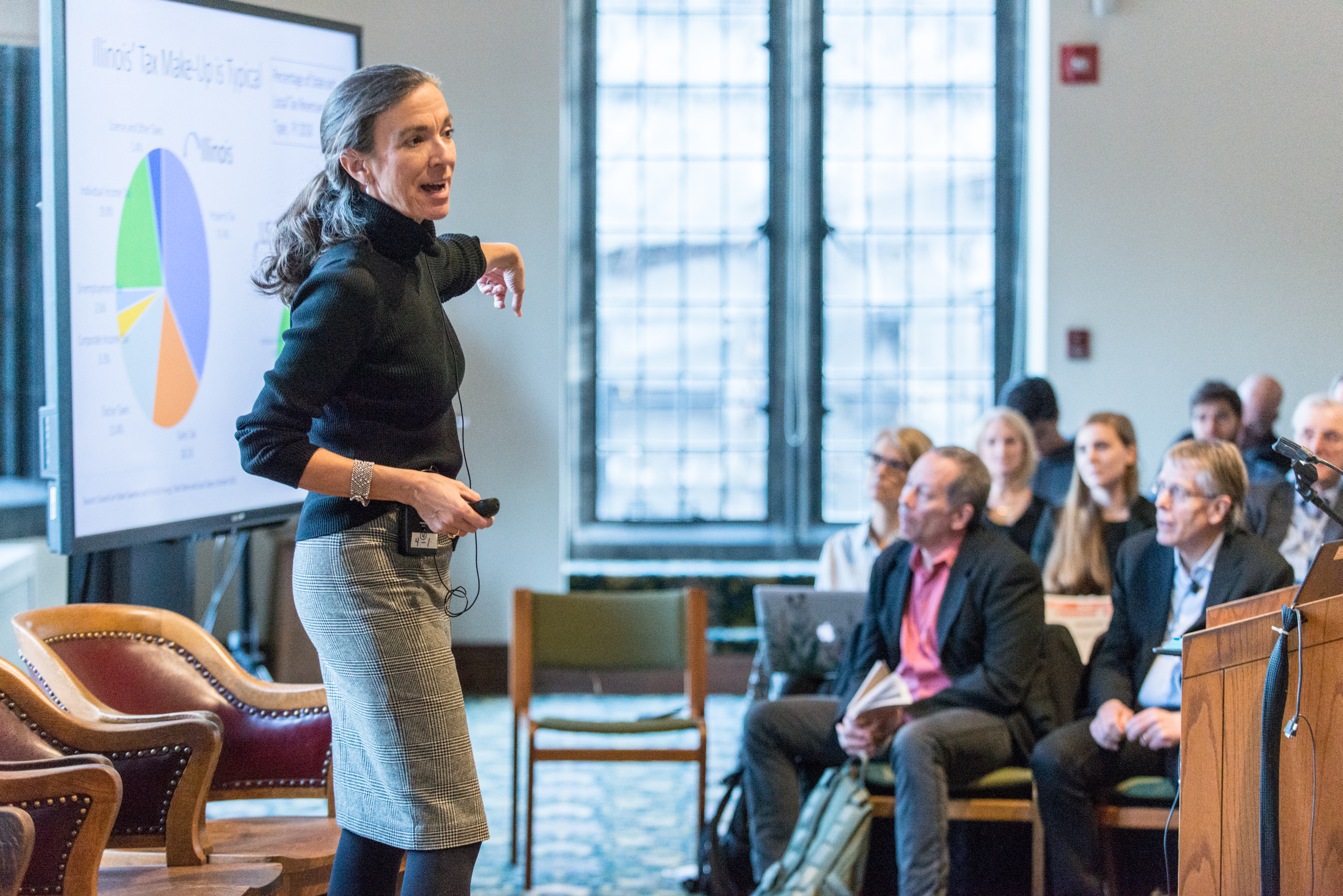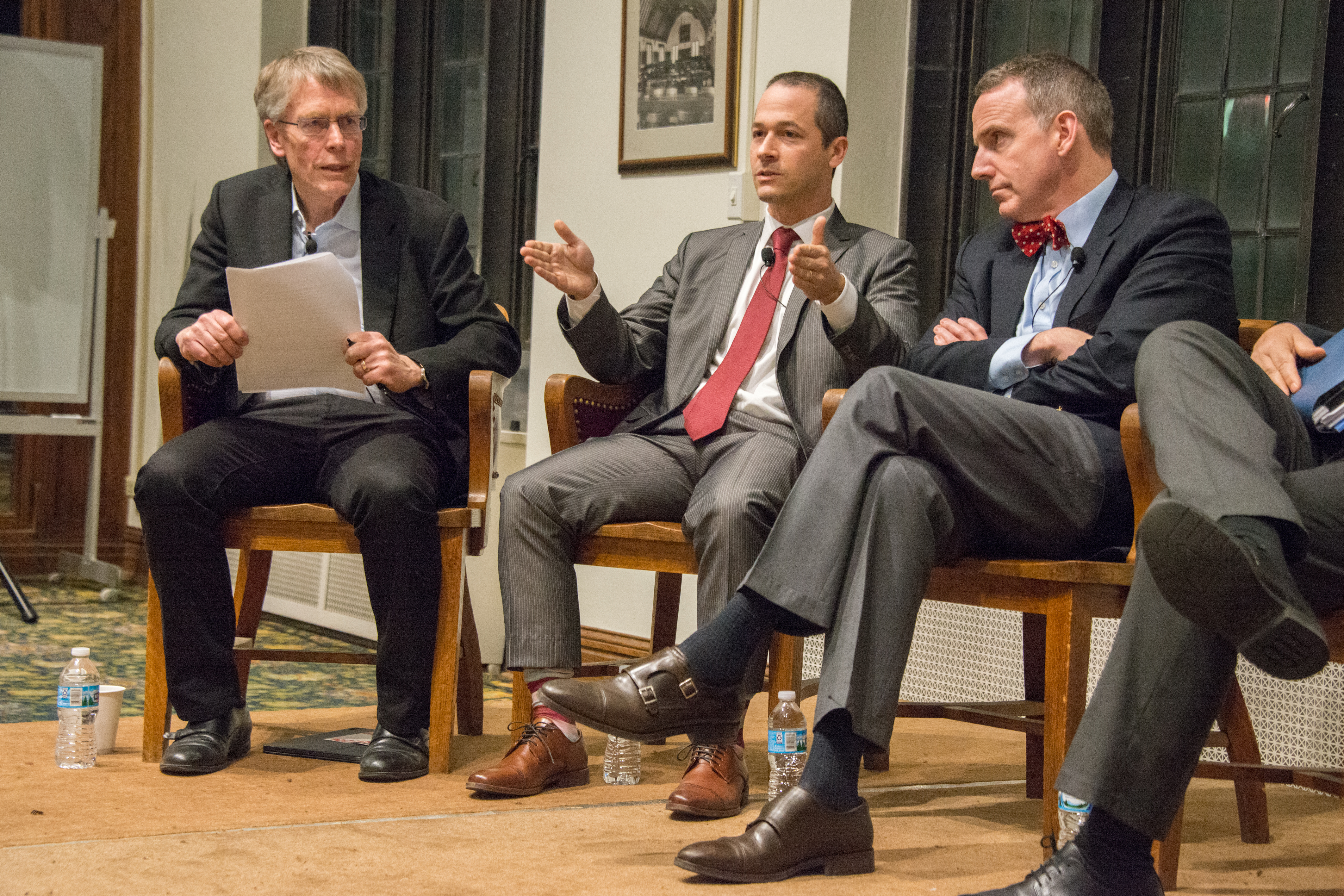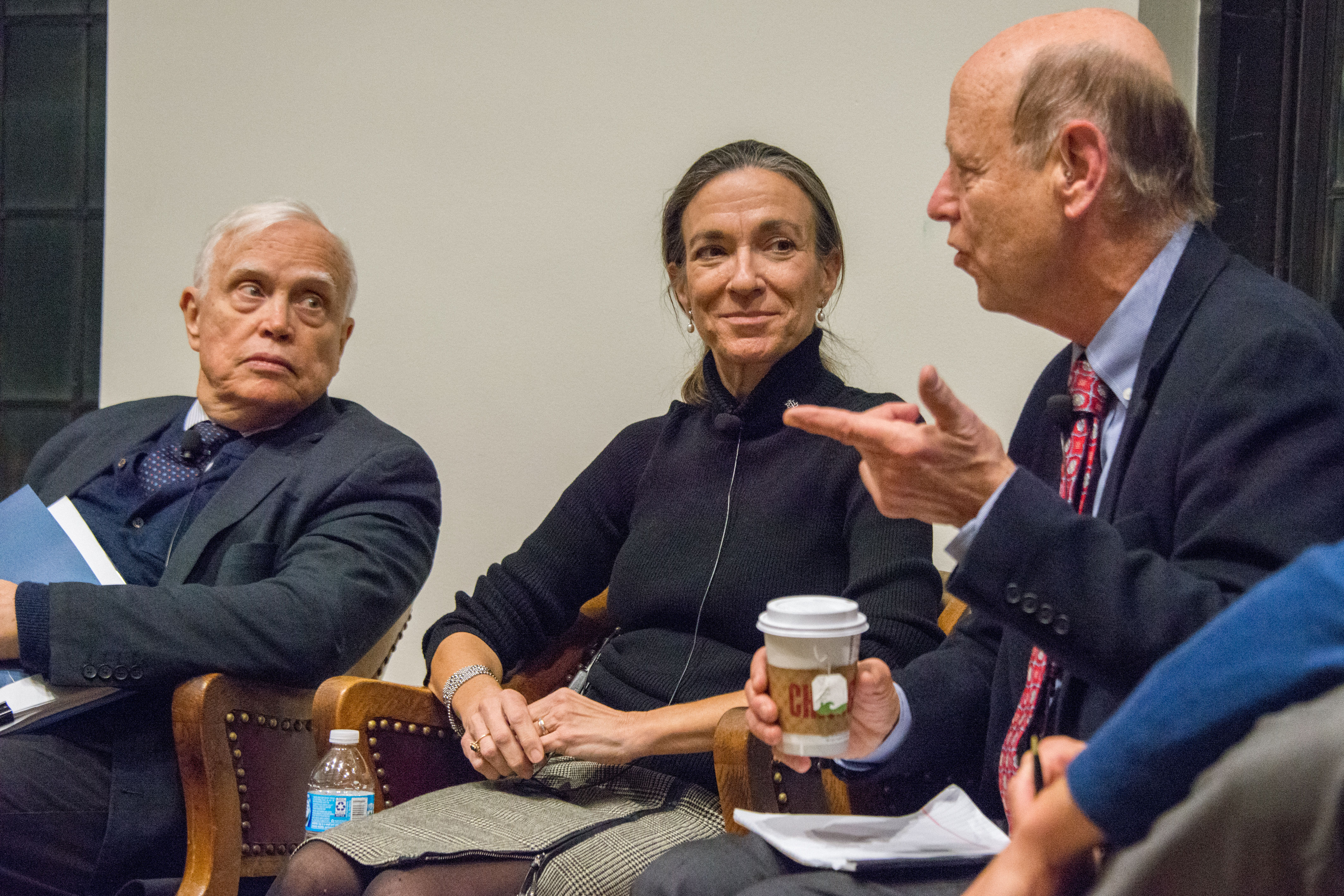Many states and municipalities, especially Illinois and Chicago, face huge public pension obligations and other spending commitments. The problem is all the more acute because the locales are already carrying a substantial debt. Against this backdrop, the University of Chicago Policy Forum: Building on the Chicago Approach to Economics, under the leadership of Lars Peter Hansen and James Heckman, brought together experts in the field to explore the pension crisis before a full house on November 8, 2019 at University of Chicago’s Swift Hall. The event was co-sponsored by Hansen’s Macro Finance Research Program (MFR) and Heckman’s Center for the Economics of Human Development (CEHD).

C. Eugene Steuerle (Urban Institute), Carol Portman (Taxpayers’ Federation of Illinois), and Byron Lutz (Board of Governors of the Federal Reserve System) gave opening presentations, setting the stage for an engaging dialogue and debate that included Edward Glaeser (Harvard University), Joshua Rauh (Stanford University), and Heckman, with Hansen serving as moderator. Steuerle led things off by documenting the rising fraction of committed expenditures at local and national levels. These commitments give future governments limited leeway to address important problems that will likely emerge in the future and will make it particularly difficult to initiate new productive investments in education, infrastructure, and health. Portman presented the stark situation in Illinois. Lutz gave a more optimistic account of the problem by working through some budgetary arithmetic. He noted that low interest rates make it easier to “roll-over-the-debt” into the future. This view was challenged by Rauh, who thought Lutz’s calculations were premised on an inaccurate depiction of the potential borrowing costs and rates of return on pension funds that state and local governments might experience in the future.

The panel explored a variety of hard questions. For instance, states and municipalities that seek to raise taxes in the future run the risk of losing current and new businesses and reducing job opportunities. While there are good reasons for governments to restructure or buy out existing pension contracts, the costs to the public are far from clear. While governments can, at least implicitly, default on nominal commitments through inflation, states and municipalities do not control monetary policy and pensions are often indexed, blunting this tool. The seductive impact of short-term interest rates can provide a misleading characterization of the long-term financing challenges in face of an uncertain future. Trimming back pension funds and moving from defined benefit plans to defined contribution plans has proved politically costly in many states—most notably in Kentucky where an incumbent governor was defeated in part because of the unpopularity of such reforms. Reducing the number of government units with tax and spending power could be a productive step forward, and as Portman noted, Illinois has the most independent governmental units in the country, even compared to Texas or California. Glaeser gave a blunt account of how local politics often prevent reform because of the inability of taxpayers to directly influence expenditure and tax decisions. Instead they rely on representatives who often have special interest considerations and lack incentives to take a long-term perspective. Promising pensions in the future is a seemingly cheap short-run response to intransigent public sector unions. But this approach imposes a crippling burden on the future generations in those localities.

The discussion at the forum explored a wide range of political and economic challenges facing cities and states limited by mandated social entitlement and pension commitments. The audience participated by proposing questions to panelists, along with extemporary remarks. All participants emerged with a deeper understanding of the problems and possibilities and an appreciation for the Chicago tradition of using rigorous thinking and hard evidence to probe important social problems.
Background Reading Materials
- The Sustainability of State and Local Government Pensions: A Public Finance Approach, by Jamie Lenney, Byron Lutz, and Louise Sheiner
- Congress is supposed to decide how the U.S. spends money. Soon, it won’t be able to, by Eugene Steuerle
- Fiscal Democracy in the States: How Much Spending is on Autopilot?, by Tracy Gordon, Megan Randall, C. Eugene Steuerle, Aravind Boddupalli
- Public Pension Simulator
- Urban Institute State and Local Employee Pension Plan Database
- The State of Retirement: Grading America’s Public Pension Plans
- Build Your Own Pension Plan
- Evaluating Retirement Income Security for Illinois Public School Teachers, by Richard W. Johnson and Benjamin G. Southgate
Event Videos
Introduction with James J. Heckman
Fact Session with Eugene Steuerle, Urban Institute
Fact Session with Carol Portman, Taxpayers’ Federation of Illinois
Fact Session with Byron Lutz, Board of Governors of the Federal Reserve System
Panel Discussion:
